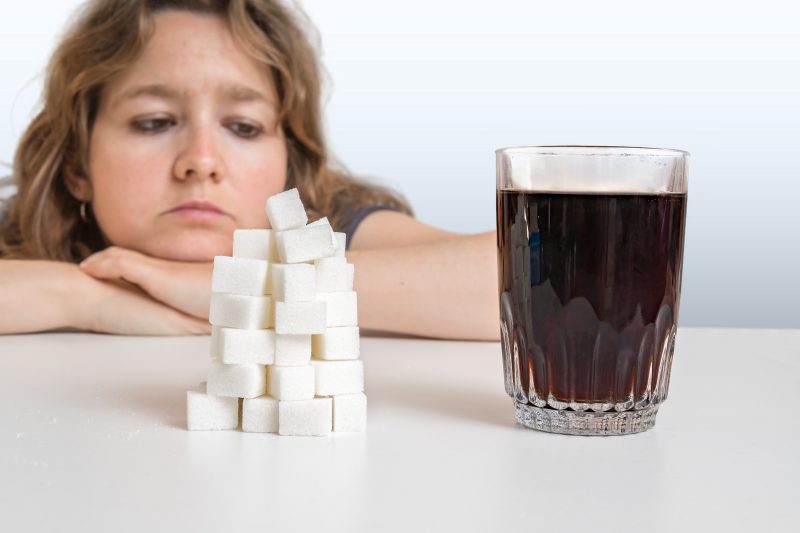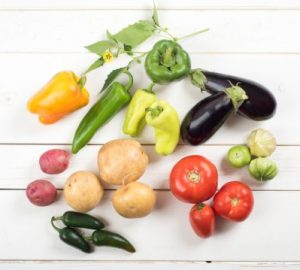Most people believe that sugary drinks are bad for health, linking high blood sugar levels, insulin resistance, metabolic syndrome, and obesity. But are sugary drinks also linked to breast cancer?
A new study sheds some light. Here’s what it found, what it didn’t find, and why you should avoid sugary drinks with a Keto Zone lifestyle.
New Study: Sugary Drinks Linked to Breast Cancer
A new study from France has found a positive association, or link, between sugary drinks, breast cancer and the overall risk of cancer (1).
The researchers reviewed the dietary habits and cancer rate among over 101,000 healthy French adults. The average age of the participants was 42 years. Twenty-one percent were men, and 79% were women.
Each participant filled out food questionnaires that measured the “usual” intake of food and beverage.
Then, the team analyzed the intake of sugary drinks specifically, as well as artificially sweetened drinks. Each participant was followed for 5-9 years to assess health.
The Results
The researchers found:
- Men drank more sugary drinks at 90.3 mL per day
- Women drank slightly fewer sugary drinks at 74.6 mL per day
- During the 5-9 follow-up time, 2193 first-cases of cancer was diagnosed (validated by medical records and insurance records)
- Of the cancer cases, 693 were breast cancer, 291 were prostate cancer, and 166 were colorectal cancer
- The average age of diagnosis was 59 years
- Sugary drinks included 100% fruit juice, and it was still positively associated even when considered separate from other sugary drinks
- Artificially sweetened drinks were not associated with a higher risk of cancer
Conclusions: Sugary Drinks Linked to Breast Cancer?
From these results, researchers concluded that sugary drinks were indeed positively associated with breast cancer and overall cancer risk.
The researchers calculated an increase in just 100 mL of sugary drinks increased cancer risk by 18%, and breast cancer risk by 22%. Further, while 22 out of every 1000 participants developed cancer, breast cancer was the most common.
Of the breast cancer cases, the link was stronger for premenopausal breast cancer than postmenopausal breast cancer.
Further Commentary: What It Actually the Sugary Drinks?
With further discussion, the authors state that “sugary drinks are convincingly associated with the risk of obesity, which in turn, is recognized as a strong risk factor for many cancers.”
Is it obesity or sugary drinks?
While further study is likely needed to determine whether the increased rate of cancer alongside sugary drink intake was the actual cause of cancer, even an indirect link (via obesity) is enough to warn against them.
What’s more, plenty of other research supports the notion that sugary drinks and junk foods are linked to health issues. For example, sodas:
- Increase the risk of obesity
- Increase the risk of metabolic syndrome: Amazingly, as little as one soda per day increases one’s risk of developing metabolic syndrome by 50%. And, according to at least one study, that one soda per day, can also increase the risk of stroke by 10% (2).
- Negatively affect the kidneys and liver: The sugars in soda can cause fat buildup around organs, by as much as 25%. Even worse, it’s estimated to cause 2 times the build-up around the liver, which can induce liver dysfunction and disease (3).
- Can increase triglycerides and cholesterol
- Negatively affect bone density and risk of fractures: Sodas that contain phosphoric acids, such as colas and others, have been associated with low bone mineral density, especially in older women (4).
Issues with this Study
1. First and foremost, anytime a study shows a link, but not a true cause and effect relationship, it’s not as strong as it would be with causation. There are many things that can affect “a link.” And, while researchers do their best to account for variables, associations are never single-variable double-blind studies.
2. While some have drawn the conclusion that artificially-sweetened drinks are safe due to this data, there was not a high enough consumption of these drinks to draw conclusions. If the intake of sugary drinks vs. artificially sweetened was similar, a better link could be drawn for both.
3. While the participants with the highest intake of sugary drinks were linked to a higher rate of cancer, those with median consumption were not. So, the lowest vs. the highest was linked to increased risk, but this does not imply (within this study) that moderate amounts have the same risk.
4. Food questionnaires are extremely unreliable. This particular was better than most. It asked for a 3-day record of eating every year, in real-time. Many studies use questionnaires to assess the usual food intake throughout a participant’s history. For example, how much fruit juice did you typically drink as an adult each day? Most people grossly overestimate or underestimates amounts on food questionnaires.
5. It doesn’t answer the question: What if the high-sugar drinkers remained at a healthy weight? Would a healthy-weight athlete be at a higher risk? Or, was it only the consumption of sugary drinks alongside obesity?
For example, some studies show that while sugar consumption is associated with Type 2 diabetes, further analysis reveals that the association is due to a high body mass index (BMI). The sugar is not identified as the cause (5). Of course, this does not mean it’s not a cause or a significant contributing factor, it just means that these studies do not prove it is.
Bottom Line
The best way to reduce your risk? Follow the Keto Zone Diet and Lifestyle! Not only will it help you break sugar addiction and eliminate sugary foods and drinks, but it will also help you obtain a healthy weight. Whether it’s an unhealthy weight or sugary drinks linked to breast cancer, you can improve your health and cancer risk starting today. Prioritize your health and choose a low-carb Keto Zone Diet.

















